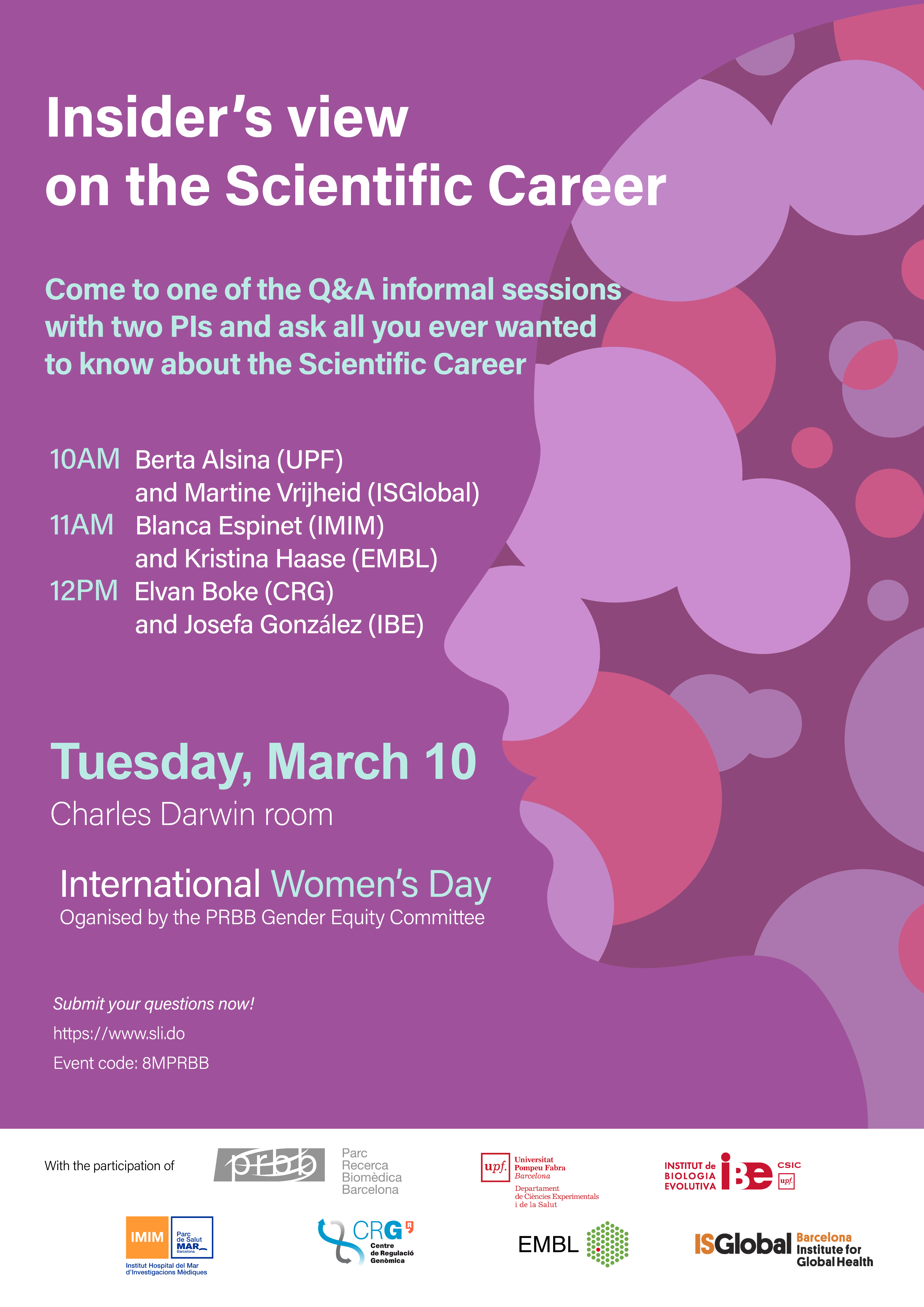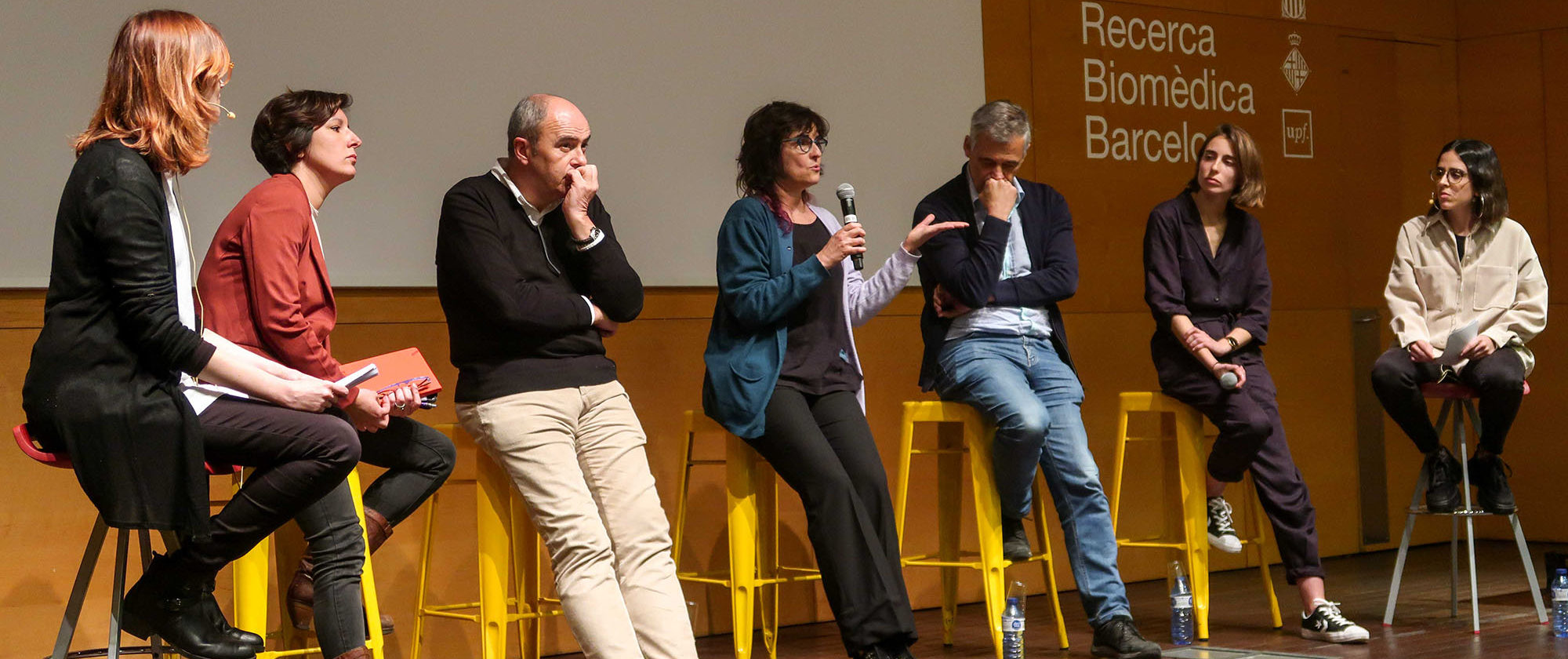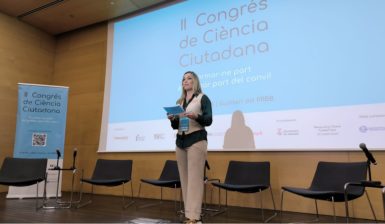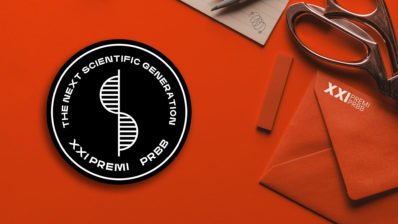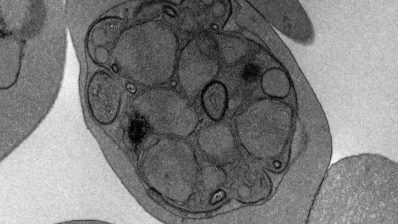For both the International Day of Women and Girls in Science (February 11) and International Women’s Day (March 8), female scientists from the Barcelona Biomedical Research Park (PRBB) shared their experiences, on a professional and a personal level — as well as the combination of both — with the rest of the PRBB residents. The purpose of these events, organized by the PRBB Gender Equity Committee, was to analyze the reality of the gender gap in science.
Scientifilia: a documentary about the scientific job, with a gender perspective
On February 11, the documentary Scientifilia, directed and produced by the head of communication of the Institute for Evolutionary Biology (IBE: CSIC-UPF), Pilar Rodríguez, was screened in the PRBB Auditorium. The documentary shows the secrets of the scientific job through the eyes of four researchers, of different gender and position.
After the screening, several researchers from the park’s centres participated in a debate — moderated by Pilar herself and Elena Lapaz (PRBB) — in which the following topics were discussed:
- Publish or perish: does this long-distance race aimed at obtaining resources and publishing favor the appearance of the glass ceiling in science?
- I feel passion for science: is it possible to find a balance between personal and professional life?
- Job insecurity in the scientific career: why do we lose more women than men on this path, which turns out to be precarious and difficult for almost everyone?
- Real solutions: what can we do in practice to face the gender gap in the scientific system?
Each of the participants ended the debate by highlighting something that, on a personal level, they could do or suggest to advance on the path of gender equality in science, such as: courses on unconscious bias for everyone; understand that equity is not only a box to tick, but it is good for the whole center; provide more visibility to female references in science; proactively search for female candidates; or encourage young female scientists, through mentoring, not to be afraid to speak their mind.
Below, you can watch the full video (in Spanish) of the debate. The participants in this debate were:
- Pilar Ortiz, PhD student at the Department of Experimental and Health Sciences, Pompeu Fabra University (DCEXS-UPF).
- Sandra Acosta, postdoc researcher at the Institute for Evolutionary Biology (IBE: CSIC-UPF).
- Rafael De La Torre, programme director at the Hospital del Mar Medical Research Institute (IMIM).
- Luis Serrano, director at the Centre for Genomic Regulation (CRG).
- Denise Naniche, scientific director at the Barcelona Institute for Global Health (ISGlobal).
Insider’s view on the scientific career: solving doubts for early career scientists
On the other hand, on March 8, six female principal investigators — representing every PRBB centre — were solving doubts, as well as curiosities and concerns, about the scientific career. The three sessions, of one hour each, consisted of an informal talk between two female researchers and a group of 15 to 20 PhD students who asked them all the questions that worried them about their future: how do successful principal investigators manage to balance their career and personal life?, is it a good idea to spend some time abroad?, what are the most important qualities to succeed as a scientist?, how to deal with situations of discrimination, or with the roller-coaster of emotions that is a PhD?, what to look for in a mentor?
Each session followed a different path, according to the personal experience of the scientists and the questions of the participants. Berta Alsina, from DCEXS-UPF, and Martine Vrijheid, from ISGlobal, moderated by Regina López Aumatell (DCEXS-UPF), highlighted the importance of finding a laboratory that is not excessively competitive and hierarchical, but one where you can feel good.
Blanca Espinet, from IMIM, and Kristina Haase, from the European Molecular Biology Laboratory – Barcelona (EMBL Barcelona), participated in the second session, with Vicky Puig (IMIM) as moderator. Although with very different experiences, both because of their fields and of their life trajectory, both researchers agreed that they had been through moments of subtle discrimination, often unconscious.
The last session was moderated by Rosa Fernández (IBE: CSIC-UPF). Many of the questions to Elvan Boke, from the CRG, and Pepi Gonzalez, from the IBE, were about what is important in order to obtain a senior position. Both scientists reassured the students, emphasizing that the scientific papers are not everything, and that the important thing is to be able to prove what you have done and your ideas.
